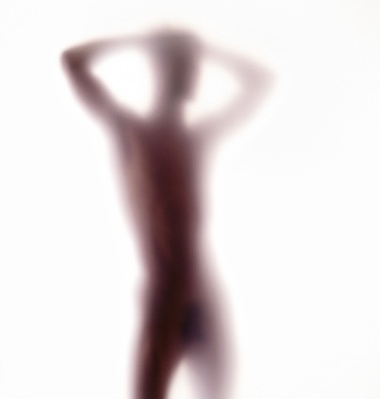Are You Decent?
A look at the curious ways the English language deals with nudity.
We are big language nerds over here at Everything To Sea. We love sharing and comparing the nuances and idiosyncrasies that exist in English versus other languages. In fact, altogether our team can speak 8 different languages, including German, French, Indonesian, Japanese, Chinese, Spanish, Javanese, and English. We couldn’t resist sharing excerpts from a blog written by Paul Rousse, editor of Naturist Travel/H&E Naturist. He takes a deep dive into the various ways that people have used the English language to describe nudity, from the coarse and comical to the polished and old-fashioned.
It’s a well-known fact about English that it has more actual words than almost any other language. It’s one of the many reasons there is such a rich heritage of authors, playwrights and poets with the means at their disposal to express themselves in an eloquent and diverse way.
But it also means that there are more ways of NOT saying something, and this, allied to natural British reserve, results in a plethora of euphemisms and colloquialisms, especially with regard to sex, bodily functions and – it almost goes without saying – nudity.
The British can’t just be naked or nude for instance. We have to be in the nuddy, in our birthday suits, in the all-together, in the buff, in the raw, naked as the day we were born, buck naked, starkers, with our kit off, without a stitch on, wearing only a smile, naked as a jaybird, doing the fully monty. And if we really want to cover our embarrassment, we even borrow phrases from the French such as au naturel or déshabillé.
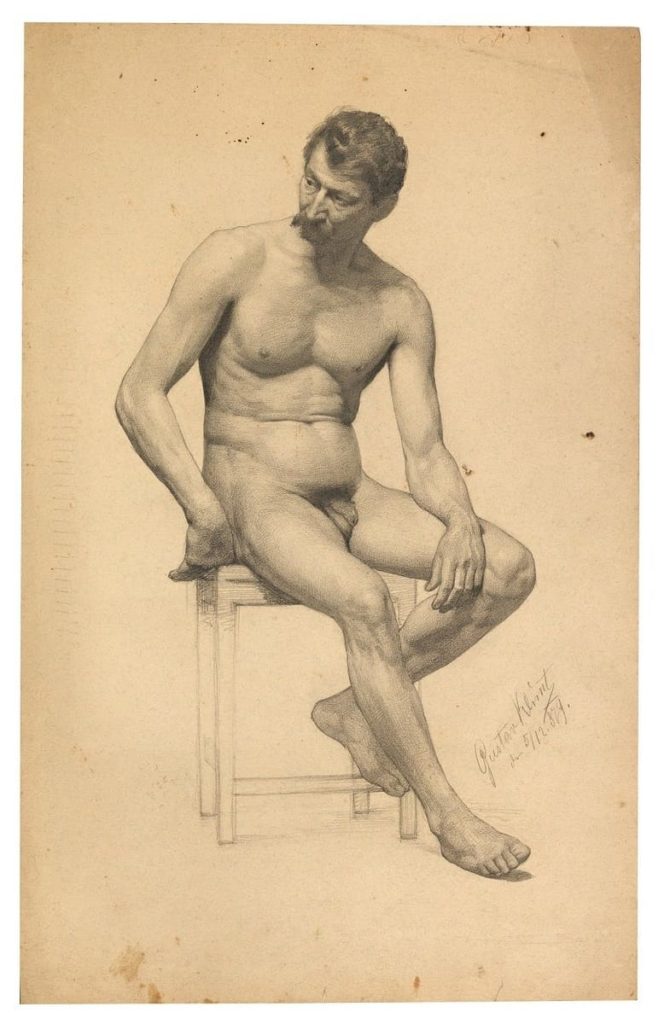
The same goes for those parts of the body that are not normally (unless you are a naturist) exposed in public. Many naturists will tell you that naturism has nothing to do with sex. Unless you’re asexual however, that is clearly nonsense: young or old, straight or gay, we can all admire (and be aroused) by the sight of an attractive naked person. It’s human nature. The difference is that we don’t tend to harp on about it, and accept that nudity, in public or otherwise, is a perfectly normal, natural state. It’s around us a lot of the time and is therefore nothing unusual, or something that flusters us. It also explains why, on the whole, naturists tend to call a spade a spade – or, to put it into context, a bottom a bottom.
Admittedly in everyday speech we probably all eschew using such bluntly clinical terms as penis and vagina, but as a rule we don’t – unless we are being ironic and highlighting the textile world’s discomfort with the subject – tend to talk about ‘naughty bits.’ Why would we? We don’t see them as being naughty in the first place.
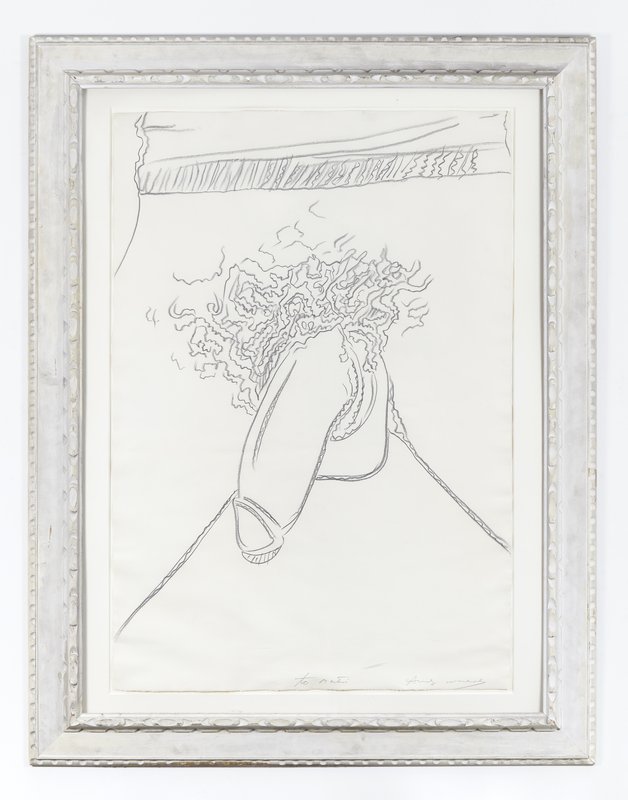
Just think however how many different ways the English language has of describing breasts, bottoms or male and female genitalia, ranging from the crude to the comical and everywhere in between. Boobs, tits, bristols, knockers, jugs, hooters. Rear-ends, bums, backsides, behinds, derrières. Dick, cock, willy, tool, trouser snake, John Thomas. Pussy, snatch, minge, muff, fanny (unless you’re American of course, which totally confuses the subject). There are hundreds more. And that’s without getting into local slang or dialect words. Whole books could – and probably have – been written on the subject.
Culprits
If some of the above might be considered a little coarse, or have overtly sexual connotations, fear not: English rides to the rescue with a host of other more genteel, old-fashioned ways of not talking about those pesky, awkward parts of the anatomy: nether regions, down below, bits, ladyparts, manhood, bosoms, posteriors… the list goes on.


Professional prudes can be found complaining to social media operators, writing to the newspapers, lobbying politicians, forming protest groups or instigating petitions, not only against activities that at least do involve people being naked in public spaces such as bike rides, swim clubs and performance art, but also in cases where the nudity is generally confined, such as naturist venues or designated beaches.
The media, for their part, often take great pleasure in reporting such objections, not because they are necessarily genuinely newsworthy stories but because it gives them the excuse to run pictures of fruity girls wearing nothing, and dust-off their tired clichés, limp puns and tabloid-speak glossary of naturist-related vocabulary and phrases.
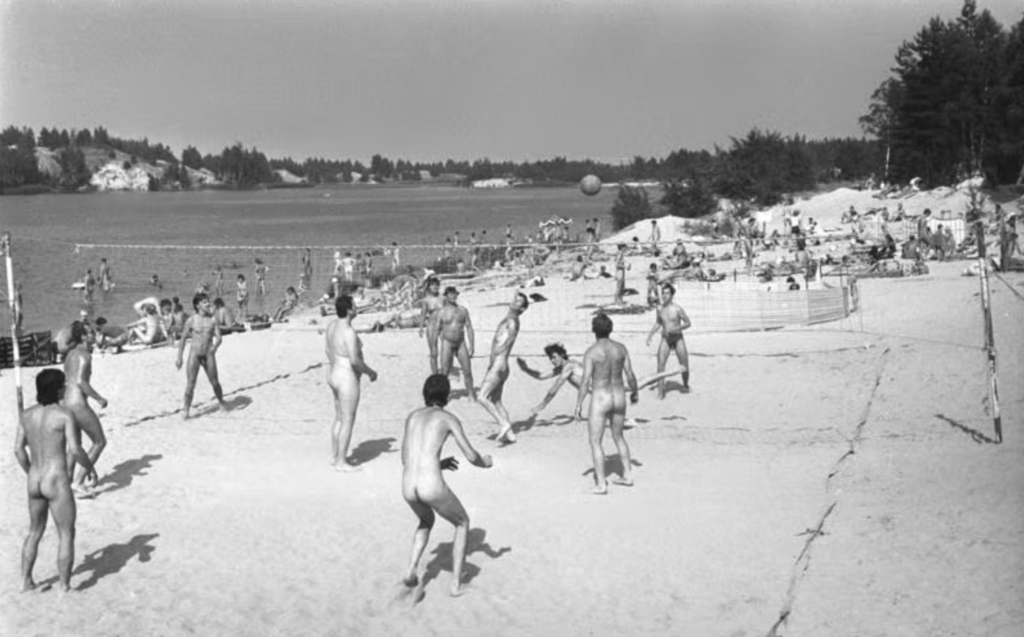
Have you ever noticed for instance that in the newspapers people who wear clothes just ‘walk around’ but naturists always ‘parade’? People in swimming costumes ‘swim’ in the sea yet naturists ‘frolic.’ If you’re wearing clothes and being active you ‘play’ but if you’re wearing nothing you ‘cavort’ or ‘romp.’ Naturist clubs are always ‘colonies’ and are invariably described as ‘paradise’ or an ‘eden’ regardless of how mundane they might be. Others are merely confidant about their bodies; naturists are ‘brazen.’ Naturists are also invariably referred to as exhibitionists, even if they are never photographed naked anywhere but a naturist beach or club, or by anybody else but their nearest and dearest – yet a dental-floss-wearing Grade Z ‘celebrity’ on a beach where there just happen to be a host of paparazzi present is merely displaying her bikini body.
Naturists don’t simply take their clothes off either: they ‘whip them off,’ ‘strip,’ ‘bare all,’ ‘disrobe,’ ‘flaunt their assets,’ ‘leave nothing to the imagination,’ ‘forget to wear anything’ or have nothing to ‘cover their modesty’ or ‘spare their blushes’ – seemingly ignoring the fact that if you are naked of your own free will, you’re not looking to cover any modesty, or have anything to blush about.
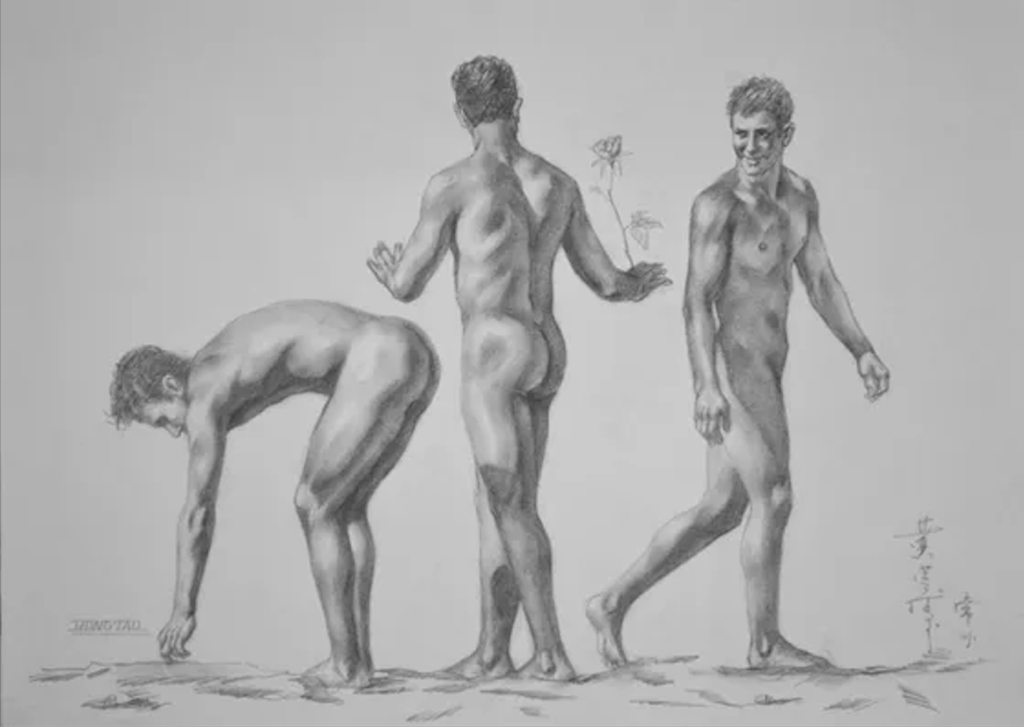
Even as a die-hard naturist of course, it’s not possible to be naked all of the time, as the weather or social convention might not always allow it. So what happens when non-naturist friends are visiting and tentatively tap on the door to ask the age-old question: “are you decent?”
I invariably reply that I am never decent – but I do occasionally wear clothes.

